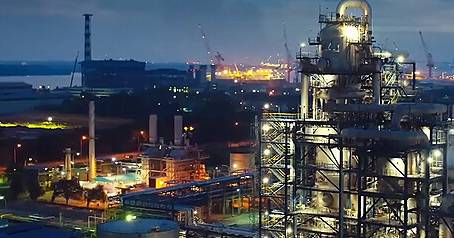nov. . 09, 2024 21:33 Back to list
Understanding PPR Hot Water Pipe Applications and Benefits for Efficient Plumbing Systems
Understanding PPR Hot Water Pipes Advantages and Applications
In modern construction and plumbing systems, the selection of pipe materials is crucial for ensuring durability, efficiency, and safety. Among the various options available, Polypropylene Random Copolymer (PPR) has gained significant popularity, especially for hot water applications. PPR pipes are known for their remarkable resistance to temperature and pressure, making them an ideal choice for transporting hot water in residential and industrial settings. This article explores the properties, advantages, and applications of PPR hot water pipes.
What is PPR?
Polypropylene Random (PPR) is a type of thermoplastic polymer made from propylene monomers. Its unique random copolymer structure provides enhanced flexibility and impact resistance, which are essential characteristics for plumbing applications. PPR pipes are available in a variety of diameters, making them suitable for various plumbing needs.
Advantages of PPR Hot Water Pipes
1. High Temperature Resistance One of the primary advantages of PPR pipes is their excellent resistance to hot water. They can typically handle temperatures up to 95°C (203°F) and pressure ratings of 20 bars, ensuring reliable performance in hot water distribution systems. This capability makes them suitable for hot water supply in both residential and commercial buildings.
2. Chemically Inert PPR pipes do not react with the substances they carry, making them a safe option for transporting hot water. They do not leach harmful chemicals into the water, ensuring the safety and purity of the water supply.
3. Corrosion Resistance Unlike metal pipes, PPR pipes are resistant to rust and corrosion. This characteristic not only extends the lifespan of the piping system but also reduces maintenance costs over time. The absence of corrosion is particularly beneficial in hot water systems, where high temperatures can accelerate the deterioration of traditional piping materials.
ppr hot water pipe

4. Lightweight and Easy to Handle PPR pipes are considerably lighter than metal alternatives, making them easier to transport, handle, and install. Their lightweight nature can lead to reduced labor costs during installation, as fewer workers may be required to manage the pipes.
5. Good Thermal Insulation PPR has decent thermal insulation properties, which help in minimizing heat loss during the transport of hot water. This thermal efficiency contributes to energy savings, making PPR pipes an environmentally friendly choice.
6. Long Lifespan With a lifespan of over 50 years when properly installed and maintained, PPR hot water pipes offer long-term solutions for plumbing systems. Their durability minimizes the need for frequent replacements, contributing to cost savings in the long run.
Applications of PPR Hot Water Pipes
PPR hot water pipes are used in various applications, from residential plumbing installations to large-scale industrial projects. Some common applications include
- Hot Water Distribution Systems PPR pipes are frequently used in domestic hot water supply systems, ensuring reliable hot water delivery for faucets, showers, and heating systems. - Heating Systems They are ideal for underfloor heating and radiator heating systems due to their temperature resistance and flexibility. - Industrial Applications In industries where hot liquids need to be transported, such as food processing and chemical manufacturing, PPR pipes are valuable due to their durability and chemical resistance. - Renewable Energy Systems PPR is increasingly being used in solar heating systems, where it transfers hot water from solar collectors to storage tanks.
Conclusion
PPR hot water pipes are an excellent choice for anyone looking to improve their plumbing systems with reliable, efficient, and safe piping options. Their resistance to high temperatures, corrosion, and chemical reactions makes them suitable for a wide range of applications. Moreover, their long lifespan and lightweight nature add to their desirability in both domestic and industrial contexts. As the construction and plumbing industries continue to evolve, PPR pipes are sure to remain a staple in modern infrastructure. Whether you are renovating a home or designing a new building, PPR hot water pipes should certainly be considered for your plumbing needs.
-
Durable PPR Pipe for Hot & Cold Water Systems - Easy Install
NewsAug.14,2025
-
Durable HDPE Sheet | Versatile & Impact-Resistant Plastic
NewsAug.13,2025
-
Premium PVC Soft Sheets: Clear, Flexible & Durable
NewsAug.12,2025
-
Premium PVC Round Rods: Durable, Chemical Resistant, Easy to Machine
NewsAug.11,2025
-
PP U-channel: Chemical-Resistant, Lightweight & Durable
NewsAug.10,2025
-
Transparent PVC Pipe: Clear Flexible Tubing for Fluids
NewsAug.09,2025

